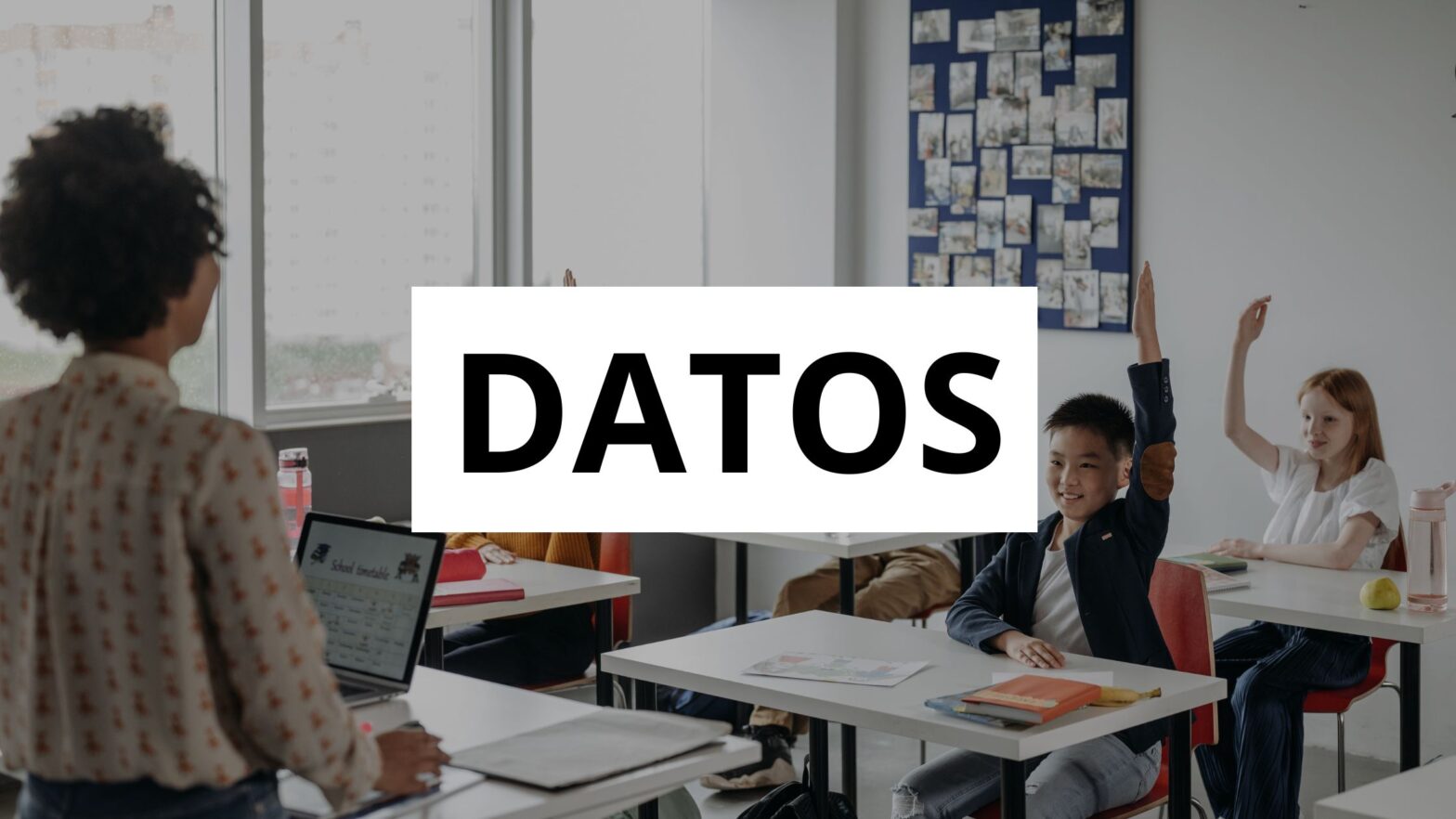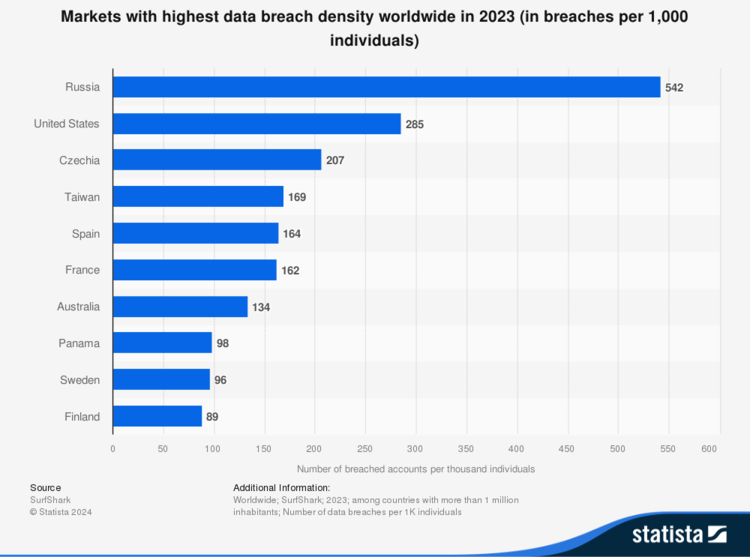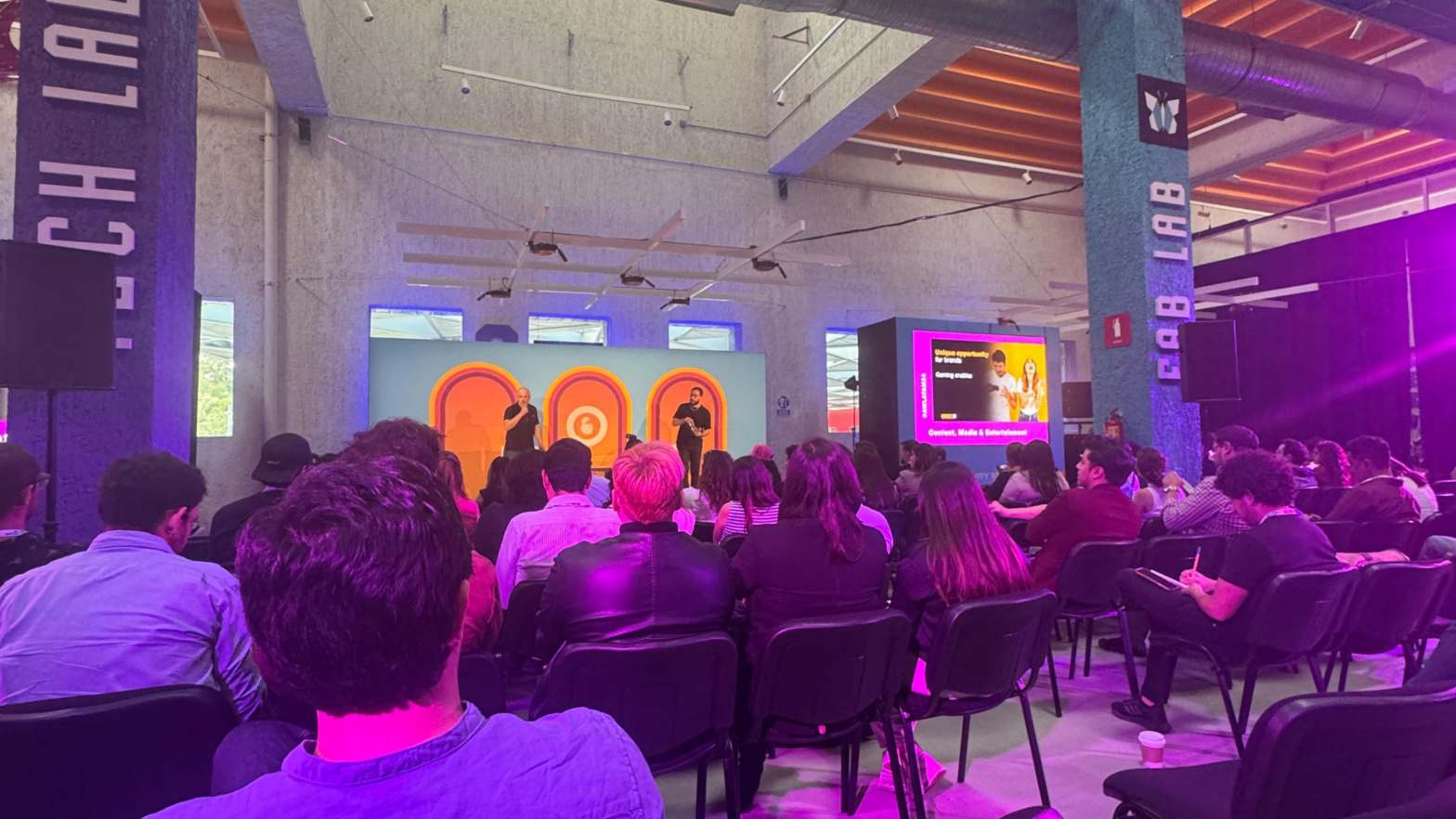Google in the classroom: educational innovation under the lens of child privacy
November 25, 2024

In an increasingly digital educational landscape, tools like Google Workspace for Education have been widely adopted by schools and universities in Spain and other countries. These platforms promise to transform learning through free, accessible, and collaborative technology. However, this transformation also raises significant concerns regarding the privacy of student data, particularly for minors.
Privacy in an interconnected world
Data breaches have been on the rise globally, as shown by the SurfShark graph identifying countries like Russia, the United States, and Spain as some of the most affected by data leaks in 2023. In Spain, for instance, 164 accounts per 1,000 people were compromised, underscoring the digital vulnerabilities present in the country compared to other markets. This becomes especially relevant in educational settings where, at times, data security is not the top priority of the tech platforms used.

Risks in the educational sector
In 2024, the Spanish Association for the Defense of Digital Privacy (AETD) issued a warning about the potential risks of using Google tools in classrooms. Reports have shown that these platforms collect personal information that could be exposed to risks if not configured properly or in the event of internal vulnerabilities. For example, recent leaks revealed security flaws within Google that affected minor users, increasing distrust towards the company.
Regulatory initiatives to protect minors
Some regions are beginning to take action. New York, for example, passed a law in 2024 to regulate the algorithms used by tech companies and the handling of minor data, aiming to guarantee the digital safety of younger users. These measures could serve as a model for other countries, including Spain, which still heavily relies on the internal policies of tech companies to protect its users.
A global problem with local implications
The increasing number of security breaches and the lack of clarity regarding data protection policies present significant challenges, especially in the educational sector. Countries like Spain must balance digital innovation with the protection of minors’ rights, ensuring regular audits and promoting digital education that raises awareness among families and school administrators about the risks and benefits of these tools.
The integration of technology into the classroom holds enormous potential to enhance education, but it should not come at the expense of privacy and data security. While Google continues to innovate, schools and governments must work together to ensure that digitization is secure, transparent, and ethically responsible.




